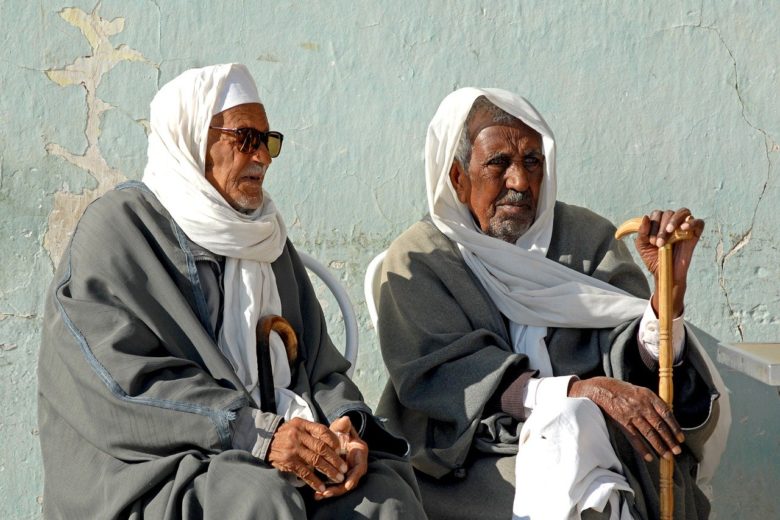“There is a well-respected man who has come to Christ. He used to be an imam. The whole community honors him and his testimony is solid. But he has two wives. Can he serve as an elder?” A church planter asked me this on a coaching call. Not a simple question to answer. This man was the cultural elder and the Person of Peace. Could he not be a spiritual leader too?
Many questions swirl around these issues as we start movements.
What do elders in a Disciple Making Movement (DMM) do? How are they appointed? Who decides who is appointed as an elder?
This is the fourth in a series of articles I’ve been writing about spiritual leadership in Disciple Making Movements.
Each movement needs to prayerfully determine how they will handle these questions. They must consider their own context in light of Biblical principles and the examples found there.
Biblical Principles on Eldership
There are 68 references to the word elder or elders in the New Testament. The Greek word used is presbuteros which has several meanings. According to Bible Study tools, any of these references simply mean those advanced in age. It was also used to mean the Jewish leaders in the council or Sanhedrin. This same word is used for various leadership roles in the Church. Sometimes it is translated elder, other times overseer.
A Look At Some of the Biblical References
In Acts chapter fourteen, the word elder is used for the first time in reference to those appointed to leadership roles in the church. Elders are appointed for the newly established churches at Lystra, Iconium, and Antioch.
“Paul and Barnabas appointed elders for them in each church and, with prayer and fasting, committed them to the Lord, in whom they had put their trust.”
– Acts 14:23 NIV.
The word church here is not referring to a particular building with a pastor as we would sometimes think of church today. It is speaking of all the believers in a particular town…they were the church there.
Then, in Acts 15:2, the word elder is used to refer to the council of the church in Jerusalem. They met to make decisions about the issues arising in the newly pioneered movements.
In Titus 1:5, Paul writes, “The reason I left you in Crete was that you might put in order what was left unfinished and appoint elders in every town, as I directed you.”
It is clear that appointing elders was a practice of Paul in how he established new churches in an area. We also see that it was not done immediately. More on that later.
What Do Elders Do?
In 1 Peter 5:1-3, we read that elders are those who care for the flock. They love and serve through their exemplary lives. They are not to Lord this position over others. They serve, they train others, they bring correction. Elders plan and make necessary decisions. They nurture the ongoing growth of the movement. In a future blog, I will talk more about deacons and how they are distinctive from elders.
Who Can Be Appointed As an Elder?
There are two places where Paul instructed his disciples, Timothy and Titus, about leadership. We must remember that these are guidelines, not a checklist of qualifications. They are not the exact same list. It is unlikely that Timothy had Titus’ list, or vice-versa. So obviously, elders were appointed without meeting the criterion of both lists.
“Here is a trustworthy saying: Whoever aspires to be an overseer desires a noble task. Now the overseer is to be above reproach, faithful to his wife, temperate, self-controlled, respectable, hospitable, able to teach, not given to drunkenness, not violent but gentle, not quarrelsome, not a lover of money. He must manage his own family well and see that his children obey him, and he must do so in a manner worthy of full respect. (If anyone does not know how to manage his own family, how can he take care of God’s church?) He must not be a recent convert, or he may become conceited and fall under the same judgment as the devil. He must also have a good reputation with outsiders, so that he will not fall into disgrace and into the devil’s trap” (1 Timothy 3:1-6).
“An elder must be blameless, faithful to his wife, a man whose children believe and are not open to the charge of being wild and disobedient. Since an overseer manages God’s household, he must be blameless—not overbearing, not quick-tempered, not given to drunkenness, not violent, not pursuing dishonest gain. Rather, he must be hospitable, one who loves what is good, who is self-controlled, upright, holy and disciplined. He must hold firmly to the trustworthy message as it has been taught, so that he can encourage others by sound doctrine and refute those who oppose it” (Titus 1:6-9).
In the context of new movements, you work with what you have. Spiritual leadership does need to be established and allowed to emerge for growth to continue. People are not perfect and movements are messy. Paul’s were. Jesus’ were.
Most of the twelve disciples didn’t fulfill the requirements of this list if they are seen as a checklist of qualities that must be met. Peter was quick-tempered. All of them were recent believers (less than three years) when Jesus commissioned them. I hope you get my point here.
Let me make a few more comments from a movement perspective about these lists.
- “Not a recent convert”
This may mean different things in different situations. Paul is giving us a cautionary note about appointing people to leadership too rapidly. Does it mean they should have been a believer for three months or three years? Or thirty years? That depends on the context and the leading of the Holy Spirit.
- “Husband of one wife”
When we worked in Nepal, one of the believers had a father who had two wives. If he came to the Lord, would he be able to serve in leadership? What was he to do with his two wives? Leave one? Divorce her? If he did, would he then be able to serve?
These are big questions that a short article can not adequately answer. Seek the Lord’s guidance. Pray and ask Him what is right for your context. But remember, this is not a list of rules, they are the advice of a spiritual father to a spiritual son. Almost no one fully meets every single qualification to the letter of the law. Let grace be your guide, not the law. We are free in Christ as long as we are looking to Him for wisdom and abiding by the principles given in these passages.
Others have used this phrase to say that women can not serve in church or movement leadership. This is an inappropriate use of this passage. Paul acknowledged the spiritual leadership of many women such as; Junias, Phoebe, and Priscilla. See the Romans 16 list and how many women are included there! Women served as leaders in the early church and were recognized as such by Paul. This is quite amazing considering the fact that his culture very rarely gave women any honor at all.
Who Appoints Elders (Leaders and Overseers)?
In the New Testament example, it was Paul, the pioneer apostle, who appointed his team members to go and appoint elders where he hadn’t yet done so. Paul appointed leaders in some locations and he also designated others to do so.
In a new movement, the apostolic team that started the movement, are the natural people to choose and appoint the first elders. Note that in scripture, leaders are not self-appointed.
As time goes on, and things continue to grow, others will also need to be appointed to join them. Generally speaking, it will be the existing leadership or eldership team that will choose new people to appoint as elders.
American political and business culture has influenced church and denominational structures greatly. Democracy is a good political system, but it was not ordained by God as the way His church is to function. Prayerful decisions and the discerning of what the Holy Spirit is saying are more Biblical than calling for a vote or having an election.
How Many Elders Should You Appoint?
It is not necessary to appoint elders in every house church or disciple-making group. Instead, recognize several elders within each stream of the emerging movement. Most of the time these will be those who are already training many others. They are faithful and fruitful people.
It is wise to appoint a team of elders to serve together. We never see in the New Testament that only one elder is appointed. Appoint elders…plural…in every town (Titus 1:5). Authoritarian leadership doesn’t multiply. A team of elders working together in unity and love reflects the Triune nature of God.
When Do You Appoint Elders?
Elders are not immediately appointed when a new group of believers (church) forms. Take your time. Don’t be in a hurry to appoint elders or feel like the church is somehow less of a body because you don’t yet have an eldership team in place.
Perhaps two to five years after the first generation groups are established, you can think about this.
This blog may have raised more questions than it’s given answers! That’s okay! Search the Scriptures and seek the leading of the Holy Spirit. God will grant you the wisdom you need as you establish and recognize leadership in the movement.
Any questions or comments? Let us hear from you below or in the DMMs Frontier Missions Facebook group.




Comments
Well I have taken a couple of times about the link which has given in a detailed ways of LEADERSHIP . with biblical references which matches with my background in terms of holy scriptures,but I was issued to the case of women’s involved in this ministry.